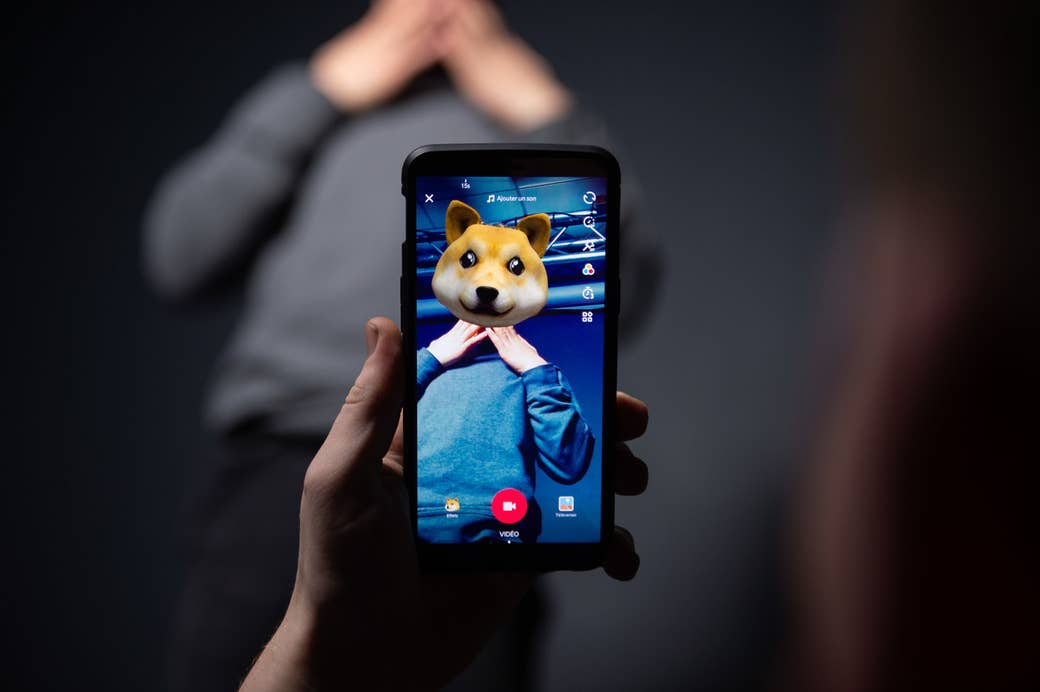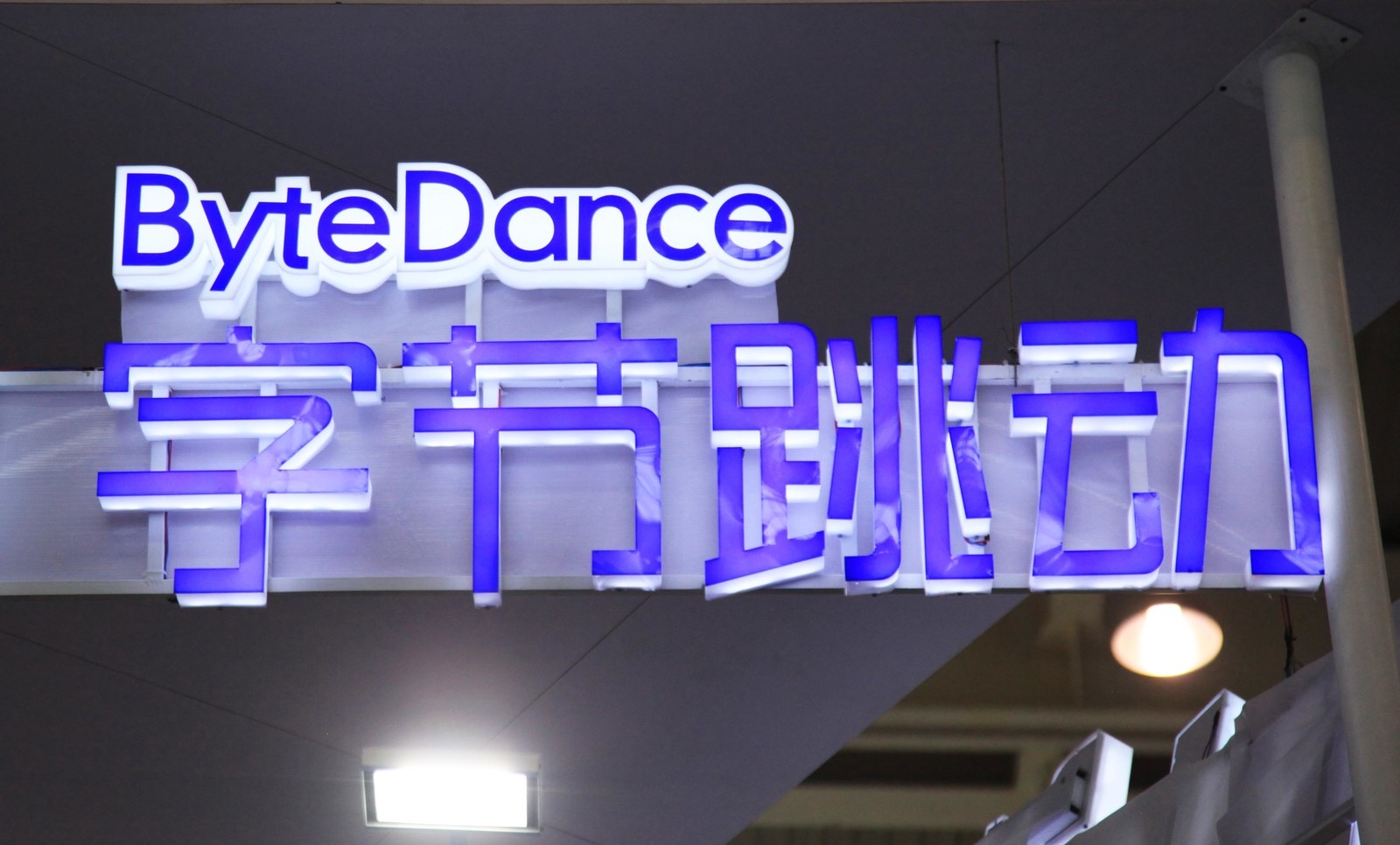
Tensions between America and China are pushing the world’s two largest economies into an escalating trade war. President Donald Trump continues to threaten a tariff hike on more Chinese goods. The United States government has already barred federal agencies from using telecom equipment made by Chinese companies Huawei and ZTE, and this week Trump signed an executive order declaring a national emergency regarding foreign powers exploiting vulnerabilities in American information and communications infrastructure.
So it’s a strange time for one of the most popular social media platforms in the US — in the world for that matter — to be Chinese. Eschewing typical forms of Chinese soft power, TikTok could be the arrival of a subtler form of algorithmic influence, with sophisticated Chinese AI controlling what becomes viral content potentially shared among millions of young Americans. Which isn’t unlike the global influence Facebook, Google, and Twitter have been exerting for the last decade. Silicon Valley may have begun the era of social media, but its future could be in China.
TikTok, a video-sharing app designed by a Beijing-based tech company called ByteDance, became the first Chinese-owned app to reach No. 1 in the US Apple App Store last November (it’s since fallen to below 20th place). And oddly, its success in the States has come by embracing strongly features that fly in the face of American platforms but are central to Chinese social media: It aggressively mines user data, its videos require sound, it is largely oriented around a central recommendation algorithm instead of a network of friends and family, it emphasizes memes and challenges over individual influencers, and it continues to add addictive features to make it impossible to avoid bingeing as Silicon Valley offers dubious tools to curb screentime.
TikTok’s head of global marketing, Stefan Heinrich Henriquez, based out of its LA office, played down the app’s Chinese provenance. In an interview with BuzzFeed News, he said there’s nothing particularly different about working for ByteDance as opposed to an American tech company. Yet considering how TikTok’s been covered in the US media in the last six months, it seems unlikely it can shake its reputation as a Chinese app.
The idea that the hottest social app now is powered by Chinese-owned AI is, well, less than comforting, considering how China employs technology for surveillance, censorship, and the tracking of minority groups at home, but focusing on that misses the larger point about TikTok right now: Kids across America are obsessed with this platform.
Before TikTok was TikTok, it was a Shanghai-based lip-synching app called Musical.ly that was available in the US and China. In 2017, ByteDance, which built the algorithms that power TikTok, bought Musical.ly to create “a significant global platform for our content creators and brands to engage with new markets.” Last August, ByteDance merged Musical.ly with its short video app TikTok, which also operates under the brand Douyin in China.
Henriquez called TikTok’s relationship to its walled-off Chinese sister app a “regional approach” that allows each app to tailor itself to local needs.
Douyin (Chinese for “vibrating sound”) — available only in China — is currently the country’s most popular short video app. It’s similar to TikTok — which is not available in China — although the apps have some different tools. TikTok’s servers aren’t based in China, only in countries where the app is available. It’s unclear how similar the AI is that powers both apps, but people who have tried both describe almost the exact same user experience.
While the two apps are walled off from each other — Douyin videos follow Chinese censorship rules and can be viewed only in the Douyin app, which can be accessed only through Chinese app stores — avid users have downloaded and crossposted videos between them. Several large Taiwanese Facebook groups and pages were downloading popular videos and reuploading them on Western social media, for instance, and one of TikTok’s biggest memes — the four generations challenge — was technically a Douyin meme that had been reuploaded to Facebook and Twitter.
TikTok’s newfound status as the hottest new app in the world hasn’t come without controversy. In February, TikTok received a record $5.7 million fine from the US government fee for illegally collecting the personal information of users under the age of 13 back when the app was known as Musical.ly. Last month, it briefly set off a moral panic in India after it was accused of promoting the abuse and exploitation of children. It’s been briefly banned in several countries like India, Indonesia, and Bangladesh. Earlier this month, the New York Times ran an opinion piece for its Privacy Project titled “We Should Worry About How China Uses Apps Like TikTok,” calling the app an “illiberal innovation" and accusing it of spreading censorship and surveillance. Quartz this month, as well, called TikTok a “Chinese Cambridge Analytica data bomb waiting to explode" — a reference to Facebook’s data mining scandal from 2018.
“If these companies don't tightly control their information flows, they wouldn't be able to operate in mainland China at all.”
How TikTok handles other facets of privacy and data are also unclear. Last year, its owner ByteDance cooperated with China’s state censors, adding thousands of human moderators to remove “vulgar” content from one of its other apps that is a newsfeed. And Douyin now sends out official push notifications and emergency alerts for Chinese President Xi Jinping’s administration, essentially making it a channel of communication for the government.
According to Manya Koetse, the editor-in-chief for Chinese social media publication What’s On Weibo, this all means that ByteDance is now at a size where cooperating with the Chinese government is strategically imperative. “If these companies don't tightly control their information flows, they wouldn't be able to operate in mainland China at all,” Koetse told BuzzFeed News. “[It’s] quite natural for a company that has this big of an influence on China's online environment.”

The gleeful lip-synching DNA of Musical.ly is still a part of TikTok’s user experience, but perhaps more important than creative features like music and sound effects is TikTok’s artificial intelligence, which works whether you have an account or not. It quickly adapts to whatever you’re watching, offering you more content from similar creators, hashtags, or featuring the same sounds.
The app is a highly personalized, infinitely scrollable feed of content that seems to incentivize users to make memes or join in on video challenges that can spread across borders and cultures. There are Nazis, harassment, and sexual exploitation on the app, but there is definitely a guiding hand that is keeping your feed wholesome and full of content won’t make you feel bad about yourself. Most content moderation happens via a powerful artificial intelligence that’s constantly recommending more videos based on a user’s previous behavior inside the app.
TikTok’s main feed is a page called “For You,” which is like if Facebook’s News Feed was as aggressively curated as Netflix’s landing page. It’ll inspire you to join in the conversation or to start a meme, share one, or watch one. Because ByteDance’s AI so aggressively moderates content, few users encounter the really wild stuff on TikTok.
Kai-Fu Lee, a Taiwanese venture capitalist and former president of Google China, told BuzzFeed News that TikTok might not represent an impending future of Chinese-dominated social media, but that it is definitely the most ambitious Chinese company going for overseas expansion right now. “TikTok has completely organically developed with multiple successful apps. They have 15 applications reaching a billion people. So I think they’re the most ambitious Chinese company going for overseas expansion. And I think they will be successful,” Lee said. Still, with the success TikTok is experiencing, “There may be a few more” coming from China.
TikTok will most likely continue incorporating whatever its artificial intelligence deems important to its users. Henriquez said whatever it is, it’ll be about reducing the amount of input needed from users to consume content, while building more tools to make creating and sharing videos easier.
“I think we're going to be experimenting further, like how technology and more people create content and what forms it could take,” Henriquez said. “It's based on what you're interested in and what you actually watch.”
TikTok could be the beginning of a wholly new generation of social media that is completely out of Silicon Valley’s control. And, most importantly, what if it’s more fun than the alternatives made in the US? While platforms like Facebook and Twitter have been taken over by bots and trolls and bullies, TikTok largely remains innocuous — for now.
“TikTok is not normal, it’s not ‘Oh another Instagram, another Vine.’”
One of those people who were thrust into the spotlight via TikTok’s algorithm is Kevin Perry (@kevboyperry), an 18-year-old from Mission Viejo, California, who currently has 1.5 million TikTok followers. He downloaded the app for fun last October and posted a video of a bottle flip where he held up a piece of paper with the words “If I land this bottle flip you have to be my girlfriend" written on it. The video ended up getting close to a half a million views. So he made another and that video did similarly well. So he kept posting. He claims to have kicked off a TikTok genre called “paper comedy” in which a punchline or a setup is usually written on a piece of paper and then held up.
“TikTok is not normal, it's not ‘Oh another Instagram, another Vine,’” he said. “I don't know what TikTok is trying to do but they're always adding new features, changing things to fit the best user experience.”
The TikTok aesthetic is hard to explain; analyzing any particular video is like trying to describe a dream. For instance, in one extremely good TikTok video from December, a young man stands in the center of a room with the music from The Avengers swelling, and right as the song hits a crescendo, the ceiling fan starts spinning and you realize the camera was attached to a fan, so it’s now spinning around him as he raises his arms to dramatic effect. Anyway, you just sort of have to watch it yourself to get it.
Take Zahra Hashimee (@muslimthicc), a 19-year-old sophomore from upstate New York posts cute, earnest slices of life to her 350,000 followers. She plays ukulele, hangs out with her little brother, and does goofy skits. “I try to be funny. I don't know how well that goes over, but people seem to like my content. I just be myself, my quirky wholesome self,” she told BuzzFeed News.
She’s quickly become a big figure among TikTok’s fairly large Muslim community. “I've had a lot of people tell me that I make them feel more comfortable wearing the hijab,” she said. “Or I make them feel more confident about their face, and there are a lot of Muslims on TikTok.”
Who can say what will take over TikTok next? Henriquez said TikTok will continue to evolve to better suit whatever its users appear to want.
That’s a fantastically vague but also liberating promise. What if ByteDance’s AI is a better investment than human influencers? What if TikTok’s algorithmic recommendations can remain fun and engaging without preying upon a user’s worst impulses? What if a stricter algorithm and some curbs on expression actually makes people happier on social media — and what do we do about that?
It’s an interesting idea when you put it all together. It makes TikTok’s many contradictions and rough edges as an app irrelevant as long as it makes us happy and new waves of people keep signing up, leading us all blissfully to an entirely new flame.
Zorro Maplestone contributed reporting to this story.
